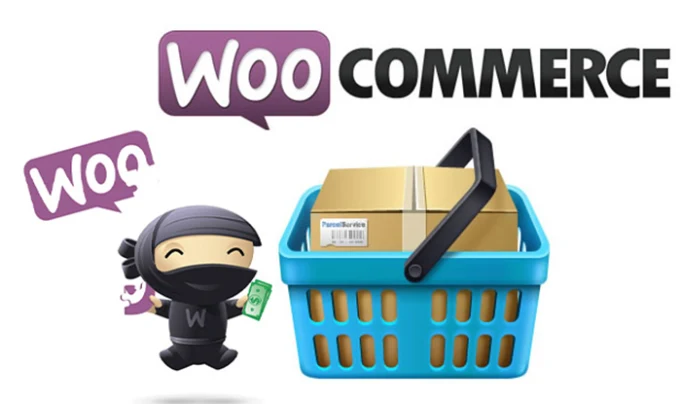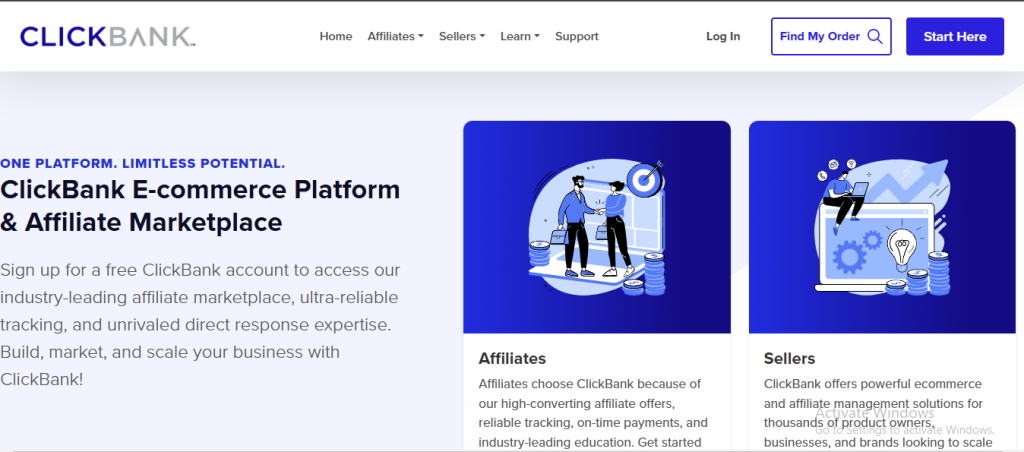What is WooCommerce?
WooCommerce is a free, open-source plugin for WordPress that transforms a standard website into a fully functional online store.
WooCommerce is a free, open-source plugin for WordPress that transforms a standard website into a fully functional online store. Originally developed by WooThemes and now owned by Automattic (the company behind WordPress.com), WooCommerce offers flexibility and customization, making it one of the most popular eCommerce platforms globally. Whether you’re selling physical goods, digital products, or services, WooCommerce integrates seamlessly with WordPress, giving you the ability to run an online business without needing to switch platforms.
Because it’s built on WordPress, WooCommerce gives you complete control over your online store’s design and functionality, offering a powerful, customizable solution for businesses of all sizes.

What is WooCommerce Good for?
WooCommerce is especially good for users who already have a WordPress website or are familiar with WordPress. It’s ideal for businesses looking for maximum control over their online store’s appearance and features. Since WooCommerce is open-source, you can modify its code to suit your specific needs, allowing for limitless design flexibility and custom functionality.
In addition to its customization capabilities, WooCommerce integrates with thousands of WordPress plugins and themes, giving you access to a wide variety of tools for SEO, marketing, and payment processing. For those wanting to create a tailored eCommerce experience, WooCommerce offers the flexibility that few platforms can match.
Who Should Use WooCommerce?
WooCommerce is a great choice for a wide range of users, particularly:
1. WordPress Users:
If you already have a WordPress website or blog, WooCommerce is the natural choice to extend your site into an eCommerce store. It integrates seamlessly, allowing you to use the same dashboard to manage both your website content and your online store.
2. Businesses that Need Customization:
WooCommerce is ideal for businesses that require more control and flexibility in designing their online store. With access to both the WordPress and WooCommerce ecosystems, you can customize virtually every aspect of your store, from product pages to checkout flows.
3. Small to Medium-Sized Businesses:
While WooCommerce can handle large-scale businesses, it’s especially popular among small to medium-sized companies due to its cost-effectiveness. WooCommerce itself is free, though you may need to invest in premium plugins and themes for additional features.
4. Developers and Designers:
Since WooCommerce is open-source, it’s a favorite among developers and designers who want the ability to modify the store’s code. For those with technical expertise, WooCommerce offers unparalleled flexibility to create unique eCommerce solutions.
What Are the Best Examples and Use Cases of WooCommerce?
Many businesses, both large and small, have built successful stores using WooCommerce. Some well-known examples include:
– Porter & York:
A fresh meat delivery service that uses WooCommerce to manage orders, subscriptions, and custom shipping options.
– All Blacks Shop:
The official store for New Zealand’s national rugby team, which uses WooCommerce for its global merchandise sales.
– Clickbank:
A large affiliate marketing network that integrates WooCommerce for selling digital products.
These examples showcase WooCommerce’s ability to support both niche markets and large, global businesses with its flexibility and wide range of integrations.
How Much Does It Cost to Have a WooCommerce Store?

One of WooCommerce’s main attractions is that the core plugin is free. However, depending on the features you need, there are additional costs to consider:
1. Hosting:
Unlike hosted platforms like Shopify, WooCommerce requires you to find your own web hosting provider. Hosting costs can range from $10 to $30 per month for a basic plan, but more robust plans may cost significantly more.
2. Domain Name:
If you don’t already have one, you’ll need to purchase a domain name, which typically costs around $10 to $20 per year.
3. Themes and Plugins:
While WooCommerce itself is free, you might need to invest in a premium theme and plugins to unlock specific features, such as advanced payment gateways, shipping calculators, or SEO tools. Premium plugins can range from $30 to $200, depending on what you need.
4. SSL Certificate:
For security purposes, you’ll need an SSL certificate, which can cost between $10 and $100 per year, although many hosting providers offer them for free.
Although WooCommerce can start out as a low-cost solution, additional costs for premium features, hosting, and security can quickly add up. Still, compared to other platforms, it remains one of the most affordable options for running an online store.
How Much Time Does It Take to Start a WooCommerce Store?
Setting up a WooCommerce store can take a bit longer than platforms like Shopify, mainly because you need to handle more technical details such as hosting, domain registration, and theme installation. However, for those familiar with WordPress, the process can be relatively quick. Here’s a general breakdown of the steps:
1. Install WordPress:
If you don’t already have a WordPress site, you’ll need to install WordPress on your hosting provider.
2. Install WooCommerce Plugin:
Once WordPress is set up, installing WooCommerce is as simple as adding the plugin and activating it.
3. Choose a Theme:
WooCommerce works with many WordPress themes, but choosing a WooCommerce-compatible theme will give you access to additional eCommerce-specific design elements.
4. Add Products:
You can start adding products, including descriptions, prices, and images.
5. Configure Payment and Shipping:
WooCommerce supports various payment gateways and shipping options, which you can set up in the dashboard.
While it might take a few hours to get the basics up and running, a fully customized store could take several days, depending on how much customization and testing you require.
Why Should I Choose WooCommerce?
There are several reasons why WooCommerce might be the right choice for your eCommerce store:
1. Complete Control:
WooCommerce gives you full control over your store’s design, functionality, and data. Unlike hosted platforms where you are limited by their tools and settings, WooCommerce allows for complete customization.
2. Cost-Effective:
The core WooCommerce plugin is free, which makes it a budget-friendly option, especially for businesses that are just starting out.
3. Flexibility:
Because it’s open-source, WooCommerce allows you to tailor your online store precisely to your needs. Whether it’s customizing product pages or adding unique features through plugins, the possibilities are almost endless.
4. Strong SEO Integration:
WooCommerce is built on WordPress, which is known for being one of the most SEO-friendly platforms. With plugins like Yoast SEO, you can optimize your store for search engines, helping you attract more organic traffic.
5. Huge Ecosystem of Plugins and Themes:
WooCommerce benefits from the vast WordPress plugin ecosystem, meaning you can integrate tools for marketing, SEO, inventory management, and more with ease.
6. Ownership of Data:
With WooCommerce, you own your store’s data outright. This is a significant advantage over hosted platforms where your store’s data is managed on their servers.
How Does WooCommerce Compare to Competitors?
Compared to other eCommerce platforms like Shopify and BigCommerce, WooCommerce offers more flexibility in terms of design and functionality but requires more hands-on management. Shopify, for instance, is a hosted solution, meaning that hosting, security, and updates are taken care of for you, but this convenience comes with fewer customization options. WooCommerce, on the other hand, gives you the freedom to build the exact store you want but requires you to manage hosting, security, and maintenance yourself.
Does WooCommerce Offer Any Support?
While WooCommerce doesn’t offer dedicated support like some hosted platforms, there’s a large and active community of developers and users. You can find extensive documentation on the WooCommerce website, and for more specific issues, forums and third-party support services are available. Additionally, many hosting providers offer WooCommerce-specific support, so choosing the right host can help with technical issues.
Final Thoughts: Is WooCommerce Right for You?
WooCommerce is a great choice for users who want full control over their eCommerce store, especially those already familiar with WordPress. It’s highly customizable and cost-effective, but it does come with the added responsibility of managing hosting, security, and updates.
For businesses looking for maximum flexibility, WooCommerce offers the freedom to build a store that’s perfectly tailored to their needs. However, if you’re looking for an easier, all-in-one solution, platforms like Shopify may be a better fit.
If you value control, customization, and the ability to scale your store with the help of an expansive plugin ecosystem, WooCommerce could be the right platform for you.









